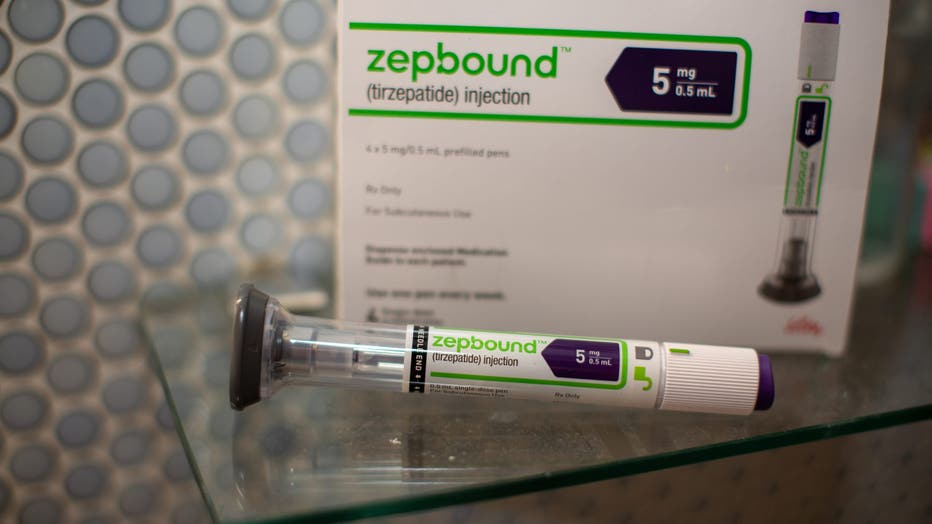FDA approves Zepbound for obstructive sleep apnea
The FDA has approved Zepbound, a popular weight loss drug, for the treatment of moderate-to-severe obstructive sleep apnea.
According to drugmaker Eli Lilly, it’s the first and only FDA-approved prescription medication for adults with obstructive sleep apnea. It’s also FDA-approved to treat obesity.
RELATED: Popular weight loss drugs could help with alcohol, opioid addictions: study
What is obstructive sleep apnea?
Obstructive sleep apnea is a breathing disorder characterized by complete or partial collapses of the upper airway during sleep, which can lead to pauses in breathing (apnea) or shallow breathing (hypopnea). That can cause a potential decrease in oxygen saturation and wake someone from sleep.
RELATED: UnitedHealthcare lawsuit: Physicians allege delay, deny, underpay practices
Symptoms include:
- Snoring
- Fatigue
- excessive daytime sleepiness
- disrupted sleep
Sleep apnea can also prevent weight loss.
Zepbound for sleep apnea
FDA approval for Zepbound to treat sleep apnea was based on three clinical trials, Eli Lilly said, which found Zepbound was five times more effective than a placebo in reducing breathing disruptions in adults, both on and off PAP therapy.

FILE - Zepbound injection pen (Photographer: Shelby Knowles/Bloomberg via Getty Images)
According to Eli Lilly, after one year, 42% of adults on Zepbound and 50% of adults on Zepbound with PAP therapy experienced remission or mild, non-symptomatic obstructive sleep apnea, compared to 16% and 14% of people who took the placebo, respectively.
Adults on Zepbound also lost an average of 45 pounds. That increased to 50 pounds for adults on PAP therapy who took Zepbound. People who took the placebo lost an average of 4 pounds and 6 pounds, respectively.
How does Zepbound work for weight loss?
The latest popular weight loss drugs are known as GLP-1 receptor agonists because they mimic a hormone in the body known as glucagon-like peptide 1.
Mounjaro and Zepbound are versions of a drug called tirzepatide.
Zepbound, Mounjaro, Wegovy and Ozempic work in similar ways to reduce appetite. But Zepbound and Mounjaro are what’s called "dual-agonist" drugs while Wegovy and Ozempic are what’s known as "single-agonist" drugs. These drugs activate important hormone pathways in the body, according to UC Health.
What are the side effects?
Though weight loss drugs like Zepbound appear safe, they can cause side effects, some serious. Most common reactions include diarrhea, nausea, vomiting, constipation and stomach pain. Some users have developed pancreatitis or inflammation of the pancreas, others have had gallbladder problems.
Mounjaro’s product description warns that it could cause thyroid tumors, including cancer.
Although versions of these drugs have been on the market for several years, the long-term effects of taking drugs that override human metabolism are not yet clear. Early evidence suggests that when people stop taking the medications, they gain the weight back.

